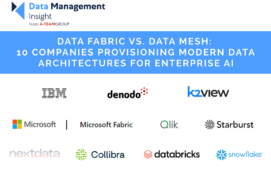SIX Financial Information has put defensibility at the heart of its next-generation Evaluated Pricing Service (EPS), which will replace existing pricing products covering complex securities pricing and fair value pricing. Migration to the new service started this week and is expected to be complete by the end of October with most existing customers simply switching from the old to the new pricing source with help from the SIX Financial Information technical team.
According to Ian Blance, head of business development for evaluated pricing at SIX Financial Information, “We have worked in this business for a number of years, developing an internal evaluation business and acquiring CSV [a US provider of complex and illiquid securities pricing that SIX had previously worked with] in 2010. In 2011, we looked at what evaluated pricing resources we had and decided we needed to develop an evaluated pricing business fit for purpose for 2012 and beyond, rather than be just a ‘me too’ provider in the market.”
He goes on: “After consultation with regulators, auditors and clients last year, we identified the key drivers for the evaluated pricing business and realised the importance of addressing the notion of defensibility. The notion was already inherent in our services, but we decided to make it a key focus and core driver.”
Building the notion of defensibility into a practical solution, SIX Financial Information set out on a strategic infrastructure and development project that would build on existing proprietary technologies to deliver a broader and more transparent evaluated pricing service to existing and new customers including asset manager, fund administrators, custodians and, on the sell side, risk managers.
The result is an extended service with a wider range of currencies bringing the total up from 11 to 26, and the integration of broader asset classes, particularly OTC derivative contracts and hybrid securities. Blance says EPS has a three-year development plan covering regions, assets and currencies. The initial phase being delivered immediately includes sovereign and corporate fixed income plus standard OTC derivatives, while next year phase two next will add valuation of local instruments in Asia and phase three is planned to move on to local valuations in Latin America. Blance points out: “Once we have local teams covering local instruments we intend to leverage that evaluated pricing information in our global solutions.”
In terms of defensibility, SIX Financial Information has used an external audit firm to produce an assurance report that validates the EPS process and is available to clients and has renewed its approach to transparency.
“Transparency is an overused word,” says Blance. “In our strategic review we decided to adopt a different philosophy, moving away from reactive effort to answer client questions on underlying approaches to pricing and instead taking a proactive approach in which we don’t wait for clients to ask for information. We have made the technical infrastructure and operational process of EPS completely open to our clients and have produced a technical document pack that states our approach. We have also developed the EP Web tool that allows clients to see how we have come to pricing decisions in terms of data assumptions, spreads and other key variables. This means users won’t necessarily have to ask us how we made decisions, but they may still want to, and can, ask us why we made those decisions and challenge prices.”
Describing EPS has a high profile initiative for SIX, Blance expects the product to compete with solutions both from large data vendors and from smaller boutique firms, but suggests SIX now has the scale, breadth of experience and depth of data to win new customers in the evaluated pricing space.
Subscribe to our newsletter



